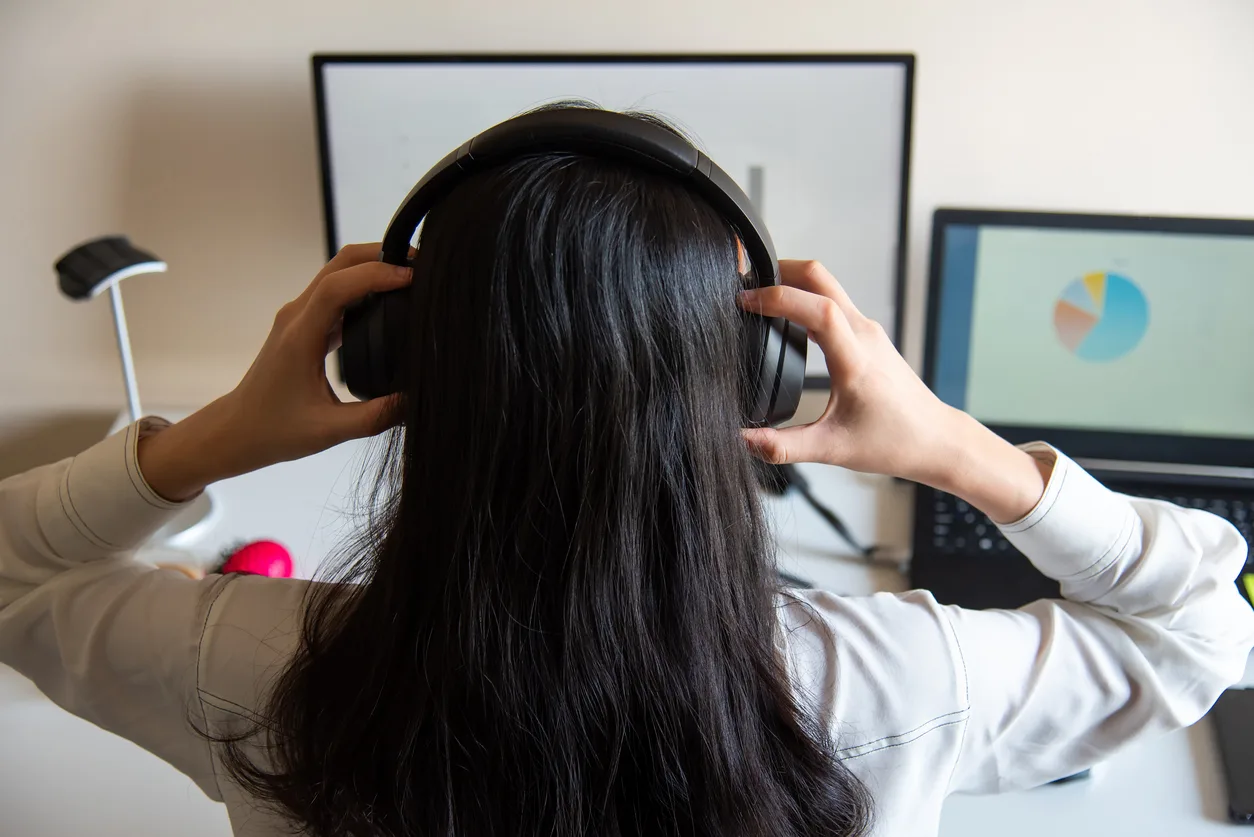Hearing loss can happen for a variety of reasons, and anyone at any age can experience it. Although many factors may contribute to hearing loss, there are some common causes that negatively impact hearing. Keep reading to learn more about the common causes of hearing loss and how you can prevent it.
Defining Hearing Loss
Hearing loss is when something affects your hearing system and you have trouble understanding, participating in, and following conversation. You may feel disengaged from your family, career, or life in general if you’re suffering from hearing loss. Although hearing loss cannot be reversed, audiologists and hearing health professionals can recommend treatments or hearing aids that may help.
There are three types of hearing loss. These include:
Conductive hearing loss: This type of hearing loss happens when something prevents sound from passing through your outer ear (ear canal), or middle ear. This can occur if there is a build-up of earwax, foreign objects stuck in the ear canal, an infection, or an abnormal growth in the middle ear. This type of hearing loss is most common in children, although it can occur in adulthood.
Sensorineural hearing loss: This type of hearing loss almost always happens over time. It occurs from damage to the inner ear, the place of origin of the nerve that runs from the ear to the brain (auditory nerve), or damage to the brain itself. This is the most common type of permanent hearing loss.
Mixed: This happens when you have damage to your inner ear (sensorineural hearing loss), and your middle or outer ear (conductive hearing loss).
A hearing test is necessary to determine what type of hearing loss you have. The solution and plan of action for caring for your hearing loss will be decided by a hearing test as well.
Five Most Common Causes of Hearing Loss
Although there are many reasons hearing loss can happen, there are five causes that are most common. Most of these causes relate to sensorineural hearing loss, but conductive hearing loss can be generated by at least one.
- Aging: Hearing loss is a common problem for aging adults as the inner ear is exposed to many outside forces over time. Age-related hearing loss, also known as presbycusis, may also run in families. Just as other parts of the body age, so do the inner ear and auditory nerve causing hearing loss.
- Noise Exposure: Noise-induced hearing loss,(NIHL), can happen over time (chronic NIHL) or from a one time exposure (acoustic trauma). The loss can be temporary or permanent depending on the damage done to the inner ear. A decibel is a unit used to measure the degree of loudness; noises above 85 decibels can damage your hearing over time, whereas a single loud noise at or above 120 decibels can cause immediate hearing loss.
- Head Trauma: Hearing loss can happen after a traumatic brain injury (TBI), as well as after a minor head injury. Head trauma does not have to be severe to cause hearing loss; a concussion suffered during a sports practice, or a bump endured during a minor car accident could cause hearing loss.
Hearing loss resulting from head trauma can sometimes subside after a few months as the brain undergoes the natural healing process.
- Virus or Disease: Certain viral infections can directly damage inner ear structures or cause inflammation that can damage these structures. Typically, virus-induced hearing loss is sensorineural, although conductive and mixed hearing losses can be seen following infection with certain viruses. Fortunately, this type of hearing loss is not always permanent.
- Genetics: Hearing loss can be genetic with or without a family history of hearing loss. Some families with genetic hearing loss may have many members who are affected, other families may have only one. Hearing loss or deafness is one of the most common congenital abnormalities, affecting one in every 1,000 babies.
The type and severity of hearing loss can still fluctuate between people in the same family even if the hearing loss is deemed genetic.
Prevention of Hearing Loss
While not every factor can be prevented to avoid hearing loss, there are steps you can take to ensure that environmental factors affecting hearing loss are minimized. The following steps can help prevent hearing loss from loud noises from developing and keep hearing loss from aging from getting worse:
Protect your ears: Avoiding loud noises in the workplace is recommended, but if you work in a noisy environment, wearing earplugs or glycerin-filled earmuffs can help protect hearing.
Have your hearing tested: If you’re experiencing some hearing loss, get your hearing tested in order to preserve what you have left. If you work in a loud environment, regular hearing tests may help diagnose a problem before it gets worse.
Avoids risks to your hearing: Power tools, a lawn mower, riding a jet ski or motorcycle, even attending a rock concert can negatively impact your hearing over time. Wearing headphones or ear plugs, or taking breaks from the noise can protect your ears. Turning down the volume of your airpods or ear buds can also help.
Hearing loss can change your life in some very drastic ways. Being aware of the risks to your hearing and taking steps to avoid situations that may negatively impact your hearing is important. Although some factors like aging and certain illnesses cannot be avoided, many factors can.
Having your hearing tested is one of the most effective ways to combat hearing loss or stop it from developing further.
To schedule a hearing test, reach out to Hearing Solution Centers today!

